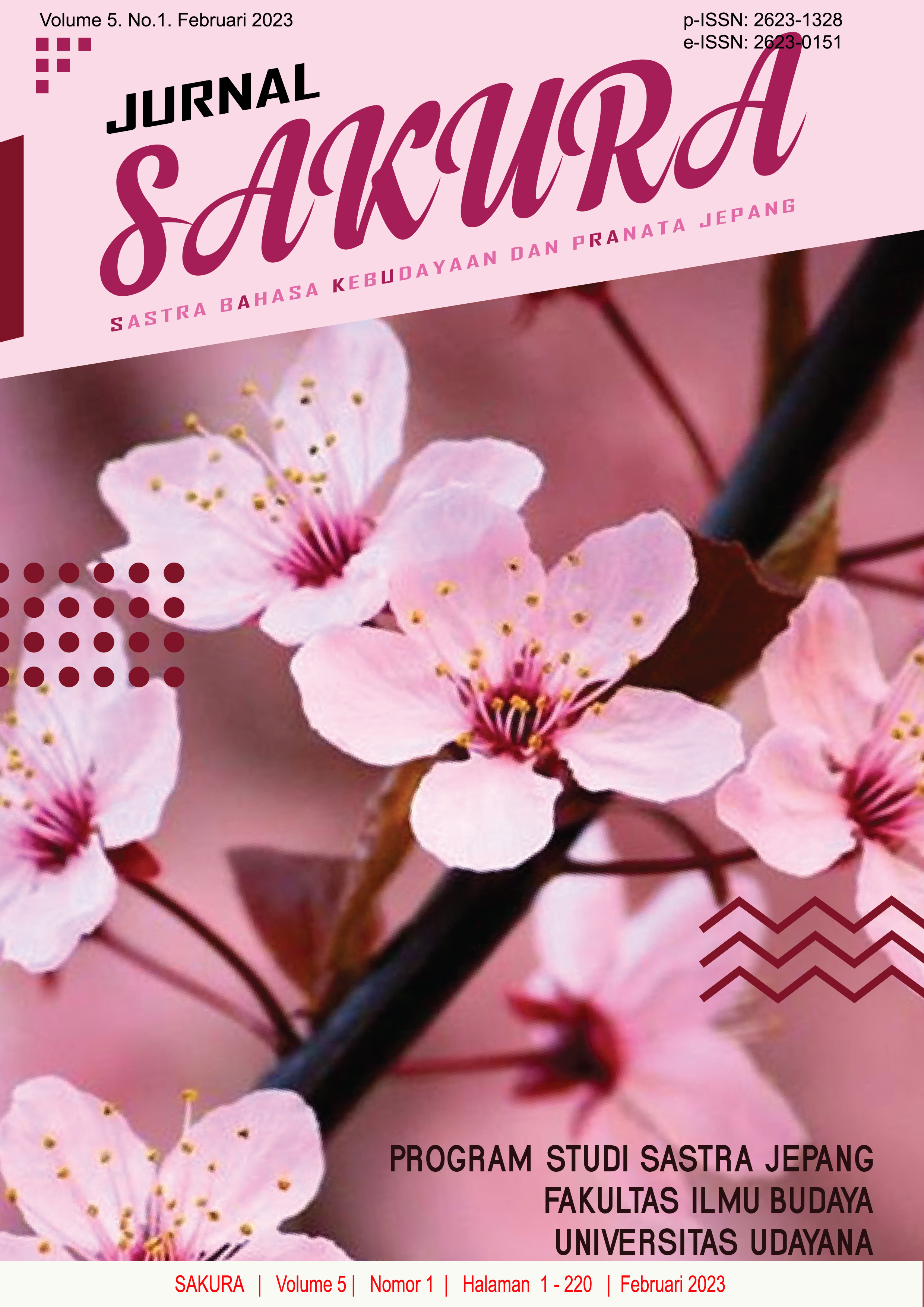The Beauty of Wabi Sabi as the Spirit of Life of the Oldman in Japanese Fairytale
-
Abstract
Wabi sabi is one of Philosophy in Japan. It’s about appreciation to the beauty of imperfection. Wabi sabi can be found in so many aspects in Japanese people’s life such as chanoyu, ikebana, haiku, or fairytale of Japanese children. This article aims to know how the oldman gets the spirit of life by wabi sabi to cheer his life. Hanasaka Jiisan is used in this research as a source of data. The result is the beauty of wabi sabi is appeared by the oldman’ house, the falling leaves, the dead trees, and the falling flowers. Furthermore, wabi sabi as the spirit of life can be found in the old man who lives with his wife, the old man who takes care of a dog, the old man who takes the ash of mortar home, and the old man who throws ash all over the dead trees and it makes the lord of local castle so happy.
Downloads
References
Devi, Rima, et.al. (2021). “The Reflection of Wabi Sabi in the Novel Joseito by Dazai Osamu”. Journal of Lingua Cultura, 15 (2), P. 167-173. DOI: https://doi.org/10.21512/lc.v15i2.7004.
Garcia, Hector dan Francis Miralles. (2016). Ikigai: Rahasia Hidup Bahagia dan Panjang Umur Orang Jepang. Jakarta: Renebook.
Juniper, Andrew. (2003). Wabi Sabi: The Japanese Art of Impermanence. Tuttle Publishing.
Kempton, Beth. (2018). Wabi Sabi: Japanese Wisdom For A Perfectly Imperfect life. London: Little, Brown Book Group.
Moleong, Lexy. (1997). Metode Kualitatif. Bandung: Remaja Rosda Karya.
Muthmainnah, Endah, et.al. (2021). “Konsep Keindahan Wabi Sabi Dalam Puisi Karya Nakahara Chuuya”. Idea: Jurnal Studi Jepang, l3 (1). DOI: 10.33751/idea.v3i1.3332.
Mori, Alicia. (2019). The Japanese Philosophy Of Accepting Imperfection And Taking Pleasure In The Transient Nature Of Earthly Things. Retrieved from https://b- ok.asia/book/7609956/1afa48[Accessed 21/10/2022.]
Suzuki, Nobuo. (2020). Wabi Sabi: The Wisdom in Imperfection. Spain: Dicoines Obelisco
Trevinarus, Jutta. (2010). The Value of Imperfection: the Wabi Sabi principle in Aesthetic and Learning. https://www.researchgate.net/publicaton/47437380.
Yurt, E., & Basarir, S. B. (2020). Aesthetics of Anaesthetics: Western Postmodern Attitude and Japanese Wabi-Sabi (侘寂). Kaygı. Uludağ Üniversitesi Fen-Edebiyat Fakültesi Felsefe Dergisi, September, 665–696. https://doi.org/10.20981/kaygi.792651
Hanasaka
https://www.keishindo.co.jp/kawaiiwa/pdf/story_hanasaka.pdf
https://youtu.be/XxHuXhyaU78













